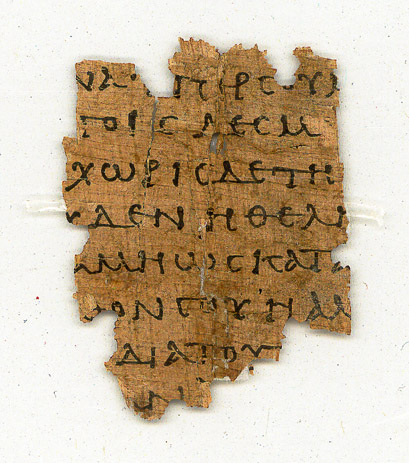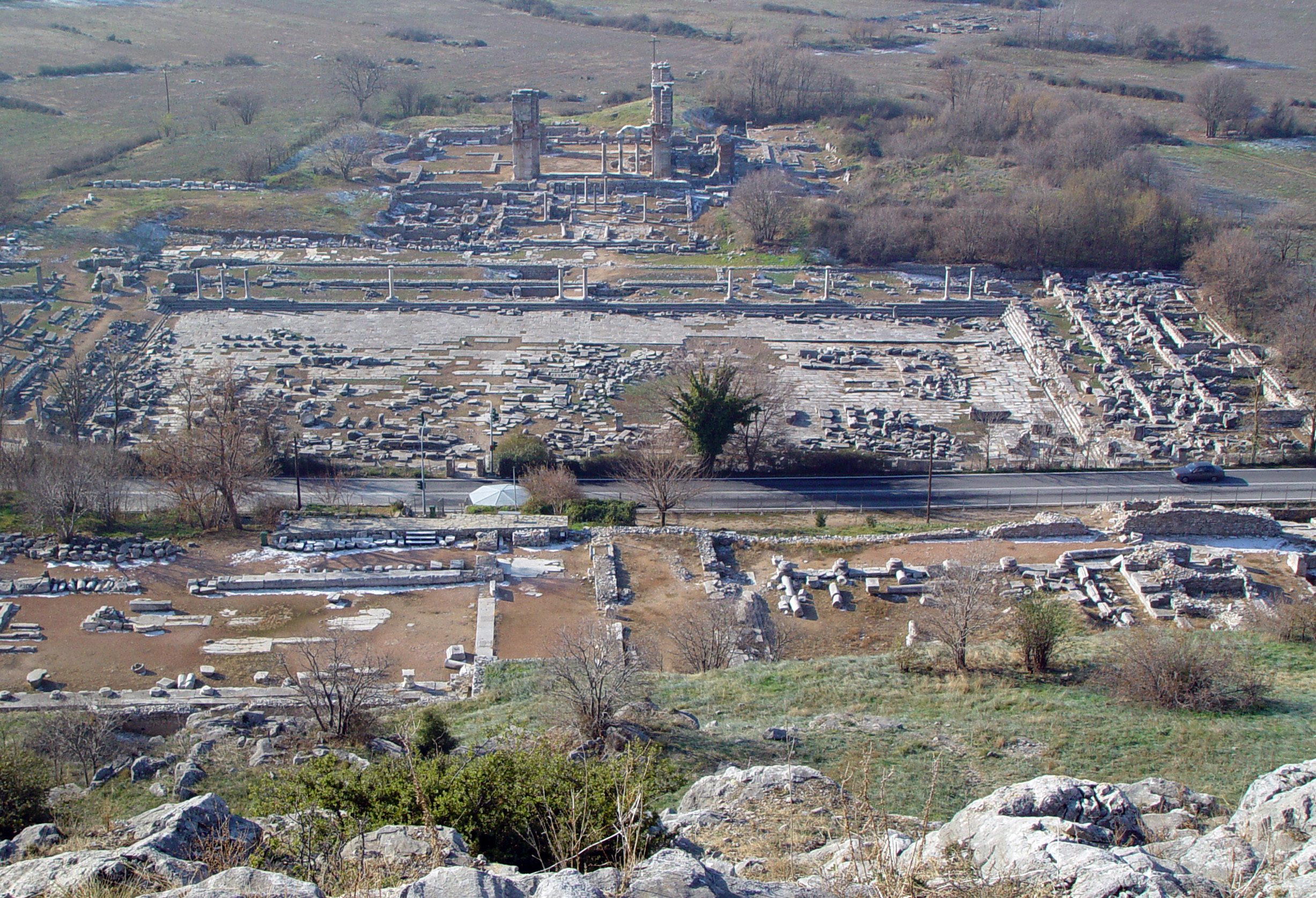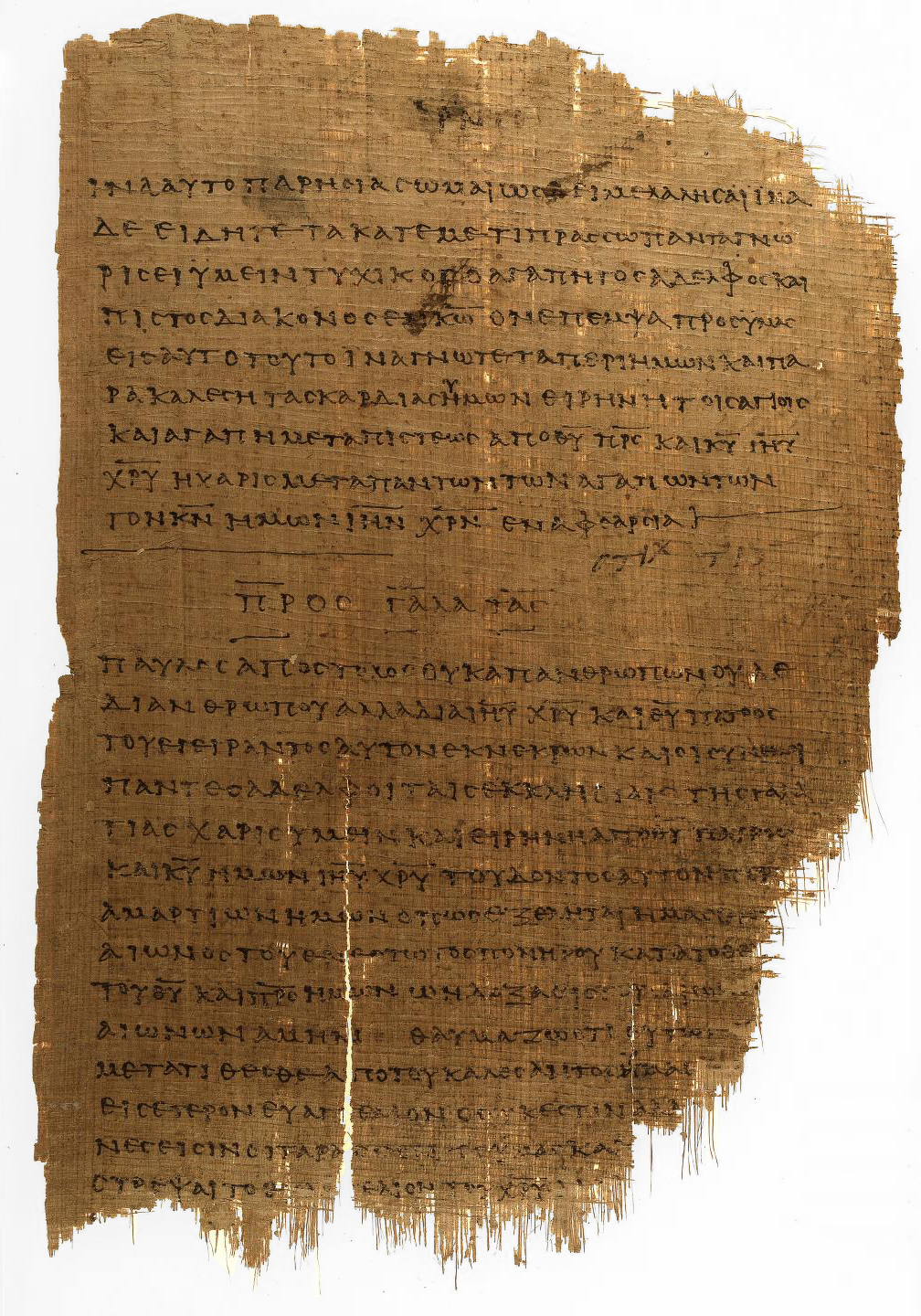|
Daniel J. Harrington
Daniel J. Harrington, S.J. (July 19, 1940 – February 7, 2014), was an American academic and Jesuit priest who served as professor of New Testament and chair of the Biblical Studies department at Boston College School of Theology and Ministry (formerly Weston Jesuit School of Theology). Harrington served as editor of ''New Testament Abstracts'' from 1972 until his death. He also edited the eighteen-volume ''Sacra Pagina'' series of New Testament commentaries for Liturgical Press and wrote "The Word" column for ''America'' magazine for three years. He was a teacher as well as a theologian and his areas of study included the interpretation of the Bible in antiquity and today, Second Temple Judaism, the Dead Sea Scrolls, biblical theology, biblical languages, the Synoptic Gospel, Pauline theology, and the book of Revelation. He was a pastoral associate at St. Agnes in Arlington, Massachusetts, and at St. Peter's in Cambridge, Massachusetts. ''America'' magazine called him "one of ... [...More Info...] [...Related Items...] OR: [Wikipedia] [Google] [Baidu] |
Society Of Jesus
The Society of Jesus (; abbreviation: S.J. or SJ), also known as the Jesuit Order or the Jesuits ( ; ), is a religious order of clerics regular of pontifical right for men in the Catholic Church headquartered in Rome. It was founded in 1540 by Ignatius of Loyola and six companions, with the approval of Pope Paul III. The Society of Jesus is the largest religious order in the Catholic Church and has played significant role in education, charity, humanitarian acts and global policies. The Society of Jesus is engaged in evangelization and apostolic ministry in 112 countries. Jesuits work in education, research, and cultural pursuits. They also conduct retreats, minister in hospitals and parishes, sponsor direct social and humanitarian works, and promote ecumenical dialogue. The Society of Jesus is consecrated under the patronage of Madonna della Strada, a title of the Blessed Virgin Mary, and it is led by a superior general. The headquarters of the society, its general ... [...More Info...] [...Related Items...] OR: [Wikipedia] [Google] [Baidu] |
1 Timothy
The First Epistle to Timothy is one of three letters in the New Testament of the Bible often grouped together as the pastoral epistles, along with Second Timothy and Titus. The letter, traditionally attributed to the Apostle Paul, consists mainly of counsels to his younger colleague and delegate Timothy regarding his ministry in Ephesus (1:3). These counsels include instructions on the organization of the Church and the responsibilities resting on certain groups of leaders therein as well as exhortations to faithfulness in maintaining the truth amid surrounding errors. Most modern scholars consider the pastoral epistles to have been written after Paul's death, although "a small and declining number of scholars still argue for Pauline authorship". Authorship The authorship of First Timothy was traditionally attributed to the Apostle Paul, although in pre-Nicene Christianity this attribution was open to dispute. He is named as the author of the letter in the text ( 1:1). Ni ... [...More Info...] [...Related Items...] OR: [Wikipedia] [Google] [Baidu] |
James F
James may refer to: People * James (given name) * James (surname) * James (musician), aka Faruq Mahfuz Anam James, (born 1964), Bollywood musician * James, brother of Jesus * King James (other), various kings named James * Prince James (other) * Saint James (other) Places Canada * James Bay, a large body of water * James, Ontario United Kingdom * James College, a college of the University of York United States * James, Georgia, an unincorporated community * James, Iowa, an unincorporated community * James City, North Carolina * James City County, Virginia ** James City (Virginia Company) ** James City Shire * James City, Pennsylvania * St. James City, Florida Film and television * ''James'' (2005 film), a Bollywood film * ''James'' (2008 film), an Irish short film * ''James'' (2022 film), an Indian Kannada-language film * "James", a television episode of ''Adventure Time'' Music * James (band), a band from Manchester ** ''James'', ... [...More Info...] [...Related Items...] OR: [Wikipedia] [Google] [Baidu] |
Literary Criticism
A genre of arts criticism, literary criticism or literary studies is the study, evaluation, and interpretation of literature. Modern literary criticism is often influenced by literary theory, which is the philosophical analysis of literature's goals and methods. Although the two activities are closely related, literary critics are not always, and have not always been, theorists. Whether or not literary criticism should be considered a separate field of inquiry from literary theory is a matter of some controversy. For example, ''The Johns Hopkins Guide to Literary Theory and Criticism'' draws no distinction between literary theory and literary criticism, and almost always uses the terms together to describe the same concept. Some critics consider literary criticism a practical application of literary theory, because criticism always deals directly with particular literary works, while theory may be more general or abstract. Literary criticism is often published in essay or book ... [...More Info...] [...Related Items...] OR: [Wikipedia] [Google] [Baidu] |
Historical Criticism
Historical criticism (also known as the historical-critical method (HCM) or higher criticism, in contrast to lower criticism or textual criticism) is a branch of criticism that investigates the origins of ancient texts to understand "the world behind the text" and emphasizes a process that "delays any assessment of scripture's truth and relevance until after the act of interpretation has been carried out". While often discussed in terms of ancient Jewish, Christian, and increasingly Islamic writings, historical criticism has also been applied to other religious and secular writings from various parts of the world and periods of history. The historian applying historical criticism has several goals in mind. One is to understand what the text itself is saying in the context of its own time and place, and as it would have been intended to and received by its original audience (sometimes called the ''sensus literalis sive historicus'', i.e. the "historical sense" or the "intended se ... [...More Info...] [...Related Items...] OR: [Wikipedia] [Google] [Baidu] |
Lectio Divina
In Western Christianity, ''Lectio Divina'' (Latin for "Divine Reading") is a traditional monastic practice of scriptural reading, meditation and prayer intended to promote communion with God and to increase the knowledge of God's word. In the view of one commentator, it does not treat Scripture as texts to be studied, but as the living word. Traditionally, ''Lectio Divina'' has four separate steps: read; meditate; pray; contemplate. First a passage of Scripture is read, then its meaning is reflected upon. This is followed by prayer and contemplation on the Word of God. The focus of ''Lectio Divina'' is not a theological analysis of biblical passages but viewing them with Christ as the key to their meaning. For example, given Jesus' statement in John 14:27: "Peace I leave with you; my peace I give unto you", an analytical approach would focus on the reason for the statement during the Last Supper, the biblical context, etc. In ''Lectio Divina'', however, the practitioner "enter ... [...More Info...] [...Related Items...] OR: [Wikipedia] [Google] [Baidu] |
Epistle To The Romans
The Epistle to the Romans is the sixth book in the New Testament, and the longest of the thirteen Pauline epistles. Biblical scholars agree that it was composed by Paul the Apostle to explain that Salvation (Christianity), salvation is offered through the gospel of Jesus in Christianity, Jesus Christ. Romans was likely written while Paul was staying in the house of Gaius (biblical figure), Gaius in Ancient Corinth, Corinth. The epistle was probably transcribed by Paul's amanuensis Tertius of Iconium, Tertius and is dated AD late 55 to early 57. Ultimately consisting of 16 chapters, versions of the epistle with only the first 14 or 15 chapters circulated early. Some of these recensions lacked all reference to the original audience of Christians in Rome, making it very general in nature. Other textual variants include subscripts explicitly mentioning Corinth as the place of composition and name Phoebe (biblical figure), Phoebe, a deacon of the church in Kechries, Cenchreae, as th ... [...More Info...] [...Related Items...] OR: [Wikipedia] [Google] [Baidu] |
2 Corinthians
The Second Epistle to the Corinthians is a Pauline epistle of the New Testament of the Christian Bible. The epistle is attributed to Paul the Apostle and a co-author named Timothy, and is addressed to the church in Corinth and Christians in the surrounding province of Achaea, in modern-day Greece. According to Jerome, Titus was the amanuensis of this epistle. Composition While there is little doubt among scholars that Paul is the author, there is discussion over whether the Epistle was originally one letter or composed from two or more of Paul's letters. Although the New Testament contains only two letters to the Corinthian church, the evidence from the letters themselves is that he wrote at least four and the church replied at least once: # 1 Corinthians 5:9 ("''I wrote unto you in an epistle not to company with fornicators''", KJV) refers to an early letter, sometimes called the "warning letter" or the "previous letter." # 1 Corinthians # The Severe Letter: Paul refers ... [...More Info...] [...Related Items...] OR: [Wikipedia] [Google] [Baidu] |
1 Corinthians
The First Epistle to the Corinthians () is one of the Pauline epistles, part of the New Testament of the Christian Bible. The epistle is attributed to Paul the Apostle and a co-author, Sosthenes, and is addressed to the Christian church in Ancient Corinth, Corinth. Scholars believe that Sosthenes was the amanuensis who wrote down the text of the letter at Paul's direction.Meyer, H. A. W. (1880)Meyer's NT Commentaryon 1 Corinthians 1, translated from the German sixth edition, ''BibleHub'', accessed May 17, 2022 It addresses various issues which had arisen in the Christian community at Corinth and is composed in a form of Koine Greek. Despite the name, it is not believed to be the first such letter written to the Corinthian church. Authorship There is a consensus among historians and theologians that Paul is the author of the First Epistle to the Corinthians, with Sosthenes as its co-author. Protestant commentator Heinrich Meyer notes that Sosthenes' inclusion in the opening wor ... [...More Info...] [...Related Items...] OR: [Wikipedia] [Google] [Baidu] |
Epistle To Philemon
The Epistle to Philemon is one of the books of the Christianity, Christian New Testament. It is a Prison literature, prison letter, authored by Paul the Apostle (the opening verse also mentions Saint Timothy, Timothy), to Saint Philemon, Philemon, a leader in the Colossae, Colossian church. It deals with the themes of forgiveness and Reconciliation (theology), reconciliation. Paul does not identify himself as an apostle with authority, but as "a prisoner of Jesus Christ", calling Timothy "our brother", and addressing Philemon as "fellow labourer" and "brother" (). Onesimus, a Slavery in ancient Rome, slave who had escaped from his master Philemon, was returning with this epistle wherein Paul asked Philemon to receive him as a "brother beloved" (). Philemon was a wealthy Christian, possibly a bishop of the house church#Origins, church that met in his home () in Colossae. This letter is now generally regarded as one of the Authorship of the Pauline epistles#undisputed, undisputed ... [...More Info...] [...Related Items...] OR: [Wikipedia] [Google] [Baidu] |
Philippians
The Epistle to the Philippians is a Pauline epistle of the New Testament of the Christian Bible. The epistle is attributed to Paul the Apostle and Timothy is named with him as co-author or co-sender. The letter is addressed to the Christian church in Philippi. Paul, Timothy, Silas (and perhaps Luke) first visited Philippi in Greece ( Macedonia) during Paul's second missionary journey from Antioch, which occurred between approximately 50 and 52 AD. In the account of his visit in the Acts of the Apostles, Paul and Silas are accused of "disturbing the city". There is a general consensus that Philippians consists of authentically Pauline material, and that the epistle is a composite of multiple letter fragments from Paul to the church in Philippi. These letters could have been written from Ephesus in 52–55 AD or Caesarea Maritima in 57–59, but the most likely city of provenance is Rome, around 62 AD, or about 10 years after Paul's first visit to Philippi. Harris, Stephen ... [...More Info...] [...Related Items...] OR: [Wikipedia] [Google] [Baidu] |
Epistle To The Galatians
The Epistle to the Galatians is the ninth book of the New Testament. It is a letter from Paul the Apostle to a number of Early Christian communities in Galatia. Scholars have suggested that this is either the Galatia (Roman province), Roman province of Galatia in southern Early centers of Christianity#Asia Minor, Anatolia, or a large region defined by ''Galatians (people), Galatians,'' an ethnic group of Celtic people in central Anatolia. The letter was originally written in Koine Greek and later translated into other languages. In this letter, Paul is principally concerned with the controversy surrounding Gentile Christians and the Law of Moses, Mosaic Law during the Apostolic Age. Paul argues that the Gentile Galatians do not need to adhere to the tenets of the Mosaic Law, particularly religious male circumcision, by contextualizing the role of the law in light of the revelation of Christ. The Epistle to the Galatians has exerted enormous influence on the history of Christiani ... [...More Info...] [...Related Items...] OR: [Wikipedia] [Google] [Baidu] |








